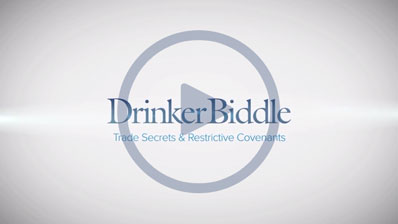To most practitioners, Pennsylvania law governing the consideration required for an employment agreement containing a restrictive covenant (e.g., a non-competition clause or non-solicitation clause) has been simple: (1) if the restrictive covenant is entered at the inception of the employment, the consideration to support the covenant is the award of the position itself; (2) if the restrictive covenant is entered during employment (i.e., post-offer), it is enforceable only if the employee receives new and valuable consideration—that is, some corresponding benefit or a favorable change in employment status. To avoid the need to provide a current employee additional consideration, some employers added magic language to their restrictive covenants, based on a statute from 1927, which arguably made a restrictive covenant enforceable without new consideration.
Specifically, the Uniform Written Obligations Act (“UWOA”) states that a written promise “shall not be invalid or unenforceable for lack of consideration, if the writing also contains an additional express statement, in any form of language, that the signer intends to be legally bound.” Thus, according to the terms of the statute, using the magic language, “the parties intend to be legally bound” erased any deficiencies in the consideration actually exchanged. Therefore, despite a significant line of authority requiring valuable consideration for post-offer restrictive covenants, an employer looking to enforce a post-offer covenant that lacked additional consideration could hold out hope of nevertheless enforcing the covenant.
Earlier this week, the Pennsylvania Supreme Court extinguished any flicker of hope with its decision in Socko v. Mid-Atlantic Sys. of CPA, Inc., No. 142 MAP 2014 (Pa. Nov. 18, 2015). There, the employer, Mid-Atlantic, was seeking to enforce a restrictive covenant against a former salesperson, David Socko. When Mr. Socko began his second stint of employment with Mid-Atlantic (he had resigned but was rehired four months later), Mr. Socko signed a new employment agreement containing a two-year noncompetition covenant. While still employed, Mr. Socko signed another, more restrictive, covenant not to compete. That agreement also expressly stated that the parties intended to be “legally bound,” but Mr. Socko apparently did not receive anything of value in return for his signature.
When Mid-Atlantic sought to enforce the agreement signed by Mr. Socko during his employment, Mr. Socko argued that the non-competition clause was unenforceable, as it was not supported by consideration. Mid-Atlantic, citing the parties’ pledge in the agreement to be “legally bound,” contended that the UWOA did not allow Mr. Socko to challenge the validity of the terms of the agreement on the basis of a lack of consideration. Ultimately, the Pennsylvania Supreme Court disagreed. The Court concluded that the UWOA does not save a post-offer restrictive covenant that otherwise lacks consideration. In reaching this conclusion, the Court cited Pennsylvania’s historical disfavor of covenants in restraint of trade and the fact that Pennsylvania courts have, for years, mandated strict compliance with the basic contractual requirement of consideration in the context of post-offer restrictive covenants.
For employers, this case serves as a reminder that they must provide new consideration in exchange for a post-offer restrictive covenant. To avoid this situation altogether, employers should consider whether they should insist, at the time of hiring, on having employees (especially those employees who will be in contact with customers or will have access to sensitive information) enter post-employment restrictive covenants. Agreements entered at the time of hiring are rarely subject to challenge for lack of consideration. Otherwise, employers will need to give up something of value in order to create a binding restrictive covenant. Continued at-will employment—which is sufficient consideration under most states’ laws—is not sufficient under Pennsylvania law. Rather, employers will need to offer more, and Pennsylvania courts have found that the following suffice as new consideration in exchange for a post-offer restrictive covenant: a promotion, a change from part-time to full-time employment, or a beneficial change to a compensation package of bonuses, insurance benefits, and severance benefits. Other valuable promises may also suffice depending on the circumstances.





